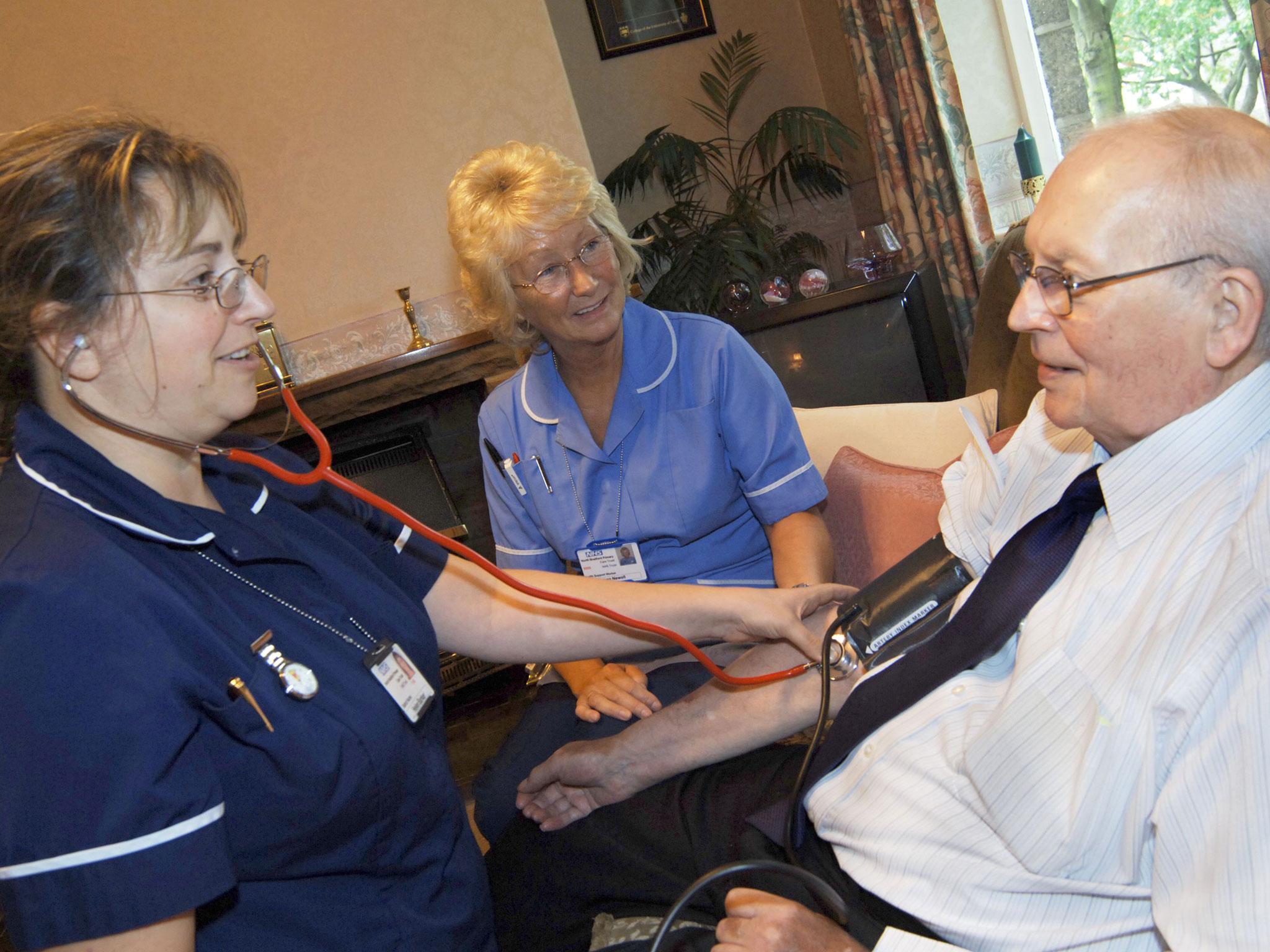Theresa May's £3.5bn for out-of-hospital care revolution not enough to deliver significant changes, experts warn
‘Far from representing a big shift in funding towards out-of-hospital services, this money will simply allow GPs and community services to keep up with demand,’ say Nuffield Trust economists

Your support helps us to tell the story
From reproductive rights to climate change to Big Tech, The Independent is on the ground when the story is developing. Whether it's investigating the financials of Elon Musk's pro-Trump PAC or producing our latest documentary, 'The A Word', which shines a light on the American women fighting for reproductive rights, we know how important it is to parse out the facts from the messaging.
At such a critical moment in US history, we need reporters on the ground. Your donation allows us to keep sending journalists to speak to both sides of the story.
The Independent is trusted by Americans across the entire political spectrum. And unlike many other quality news outlets, we choose not to lock Americans out of our reporting and analysis with paywalls. We believe quality journalism should be available to everyone, paid for by those who can afford it.
Your support makes all the difference.An additional £3.5bn announced by Theresa May to kick-start a revolution in out-of-hospital care is not the “major boost” she is claiming, experts have said.
The “historic” new investment comes from the £20.5bn-a-year the prime minister announced for the NHS in the summer and health economists estimate it will “simply allow GPs and community services to keep up with demand”.
While the commitment was cautiously welcomed by nursing and GP leaders, they say years of underinvestment have seen an exodus of staff from services now expected to take on new roles.
Analysis by the Nuffield Trust think tank said the new funding will not deliver the promised changes that are urgently needed to address rises in costly hospital care.
“This additional money amounts to annual increases that are broadly in line with the 3.4 per cent overall that the NHS in England is getting over the next five years,” senior policy analyst Sally Gainsbury said.
“That means that, far from representing a big shift in funding towards out-of-hospital services, this money will simply allow GPs and community services to keep up with demand over the next five years.
“That’s important, but it means the new money announced today is not going to lead to a significant change in the way that people experience healthcare.”
She said this is understandable given the competing priorities for NHS funds and the fact that the so-called “Brexit dividend” announced by the government fell short of what the NHS had asked for.
Recovering NHS performance on national waiting times is a major priority for the new funding. Wait times over six months rose by more than 50 per cent and services still have not fully recovered from last year’s record-breaking winter crisis, which saw hospitals run out of beds and ambulances queueing outside A&E.
No 10 estimates as many as a third of patients in hospital could be cared for at home. It pledged the funding would be used to form “24/7 rapid response teams” which will include nurses and physiotherapists working alongside doctors to provide urgent care and an alternative to hospital.
Ms May also announced a national expansion of a scheme pairing teams of GPs and pharmacists with care homes, to offer more personal care and provide emergency care out of hours.
“Many of us might assume that hospital is the safest place to be – but in reality many patients would be much better off being cared for in the community,” the prime minister said ahead of a visit to a north London health centre on Thursday.
“That’s why I’m announcing a major boost in funding for community healthcare, which will give more patients a genuine and high quality alternative to hospital.”
No 10 said the funding “represents a historic commitment to ensure a growing share of overall NHS spending for primary medical and community healthcare”. However, neither the Department of Health and Social Care or No 10 were able to confirm if the £3.5bn itself did amount to a bigger share of the NHS budget.
The British Medical Association (BMA) estimates that 8.1 per cent of the NHS budget is currently spent in general practice – not including other community or primary care services.
It has been calling for that slice of funding to be increased to 11 per cent at a minimum, and while it welcomed the government’s commitment to invest it said the “devil will be in the detail”.
Dr Richard Vautrey, chair of the BMA’s GP committee, said: “We have been clear that general practice needs an urgent increase in investment to address the pressures affecting the profession and patients, and while this announcement is an important step forward, we will be seeking urgent assurance that this really is new investment for general practice and we will want early discussions on the detail of where the money will be spent.”
Dame Donna Kinnair, acting chief executive of the Royal College of Nursing, added: “This announcement begs the question who will operate these bespoke support networks, dedicated healthcare for care residents and rapid response teams.
“The number of district nurses employed by the NHS, the backbone of community health services, has almost halved since 2010, and the number of community nursing staff overall has dropped by 15 per cent.”
Join our commenting forum
Join thought-provoking conversations, follow other Independent readers and see their replies
Comments